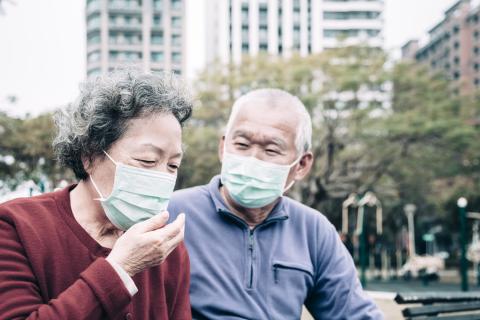
AAPI Heritage Month - Notes On Asian Americans in Psychology

May is Asian American and Pacific Islander (AAPI) Heritage Month. Considering the increased violence AAPI communities are facing this year, and the fact that May is also Mental Health Awareness Month, we wanted to give students a platform to share their perspectives from the intersection of their identities as students, future mental health professionals, and members of the AAPI community. We are thrilled to share Jeea Yang’s essay, “Biculturism: Reflecting on My Identity,” and Induni Wickramasinghe’s “Notes on Asian Americans in Psychology.”
Notes On Asian Americans in Psychology
By Induni Wickramasinghe, Doctoral Student in Clinical Psychology
It has never been more fitting that Asian American Pacific Islander (AAPI) Heritage Month and Mental Health Awareness Month overlap. As clinicians in training, we are all too familiar with the mental health toll this past year has taken on our clients and ourselves. In the AAPI community, we have seen report after report of escalating rates of racially motivated violence and xenophobic sentiment. I’ve found myself thinking of my Sri Lankan parents and the racism that they have had to endure since immigrating to the U.S., ranging from covert to I-can’t-believe-this-is-happening overt. I’ve thought about my own experience growing up in a very diverse, liberal area of California and still feeling deeply uncomfortable in my own brown skin. I’ve also been thinking a lot about steps the field of psychology can take to better serve the needs of both AAPI clients and trainees/professionals.
As a clinical psychology student, representation is one of the first things that comes to mind for me. Though these numbers are changing for the better, Asian Americans remain underrepresented in the psychology workforce. According to data collected by the American Psychological Association (APA), Asian Americans make up four percent of psychologists in the U.S. Though this is roughly proportionate to the overall percentage of AAPI individuals in the country, consider that, according to a 2019 study, 44% of Asian Americans indicated experiencing severe mental distress (compared to 18% of the general U.S. population).
Though I have had amazing supervisors and mentors in my training thus far, I have craved more mentorship from people that more closely align with my identities. I do feel hopeful, however, that the field of psychology is going through a fundamental change in its attitude towards race and racism. I have noticed a growing effort on the part of mental health professionals to address systemic inequities within our field and hope this momentum will continue.
Personally, I have found a sense of community in professional organizations such as the Asian American Psychological Association. I have found a lot of comfort in seeing growing representation of my own identities within this field. In the same way, I hope that increased representation will make it easier and easier for those in the AAPI community to reach out for mental health help.
References: